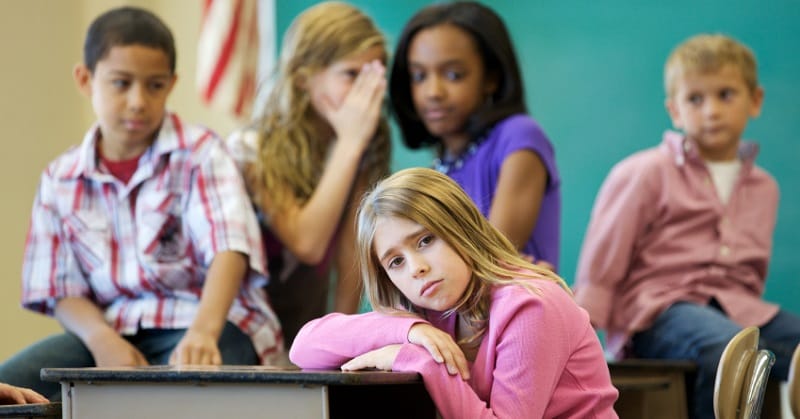
Parents often have a concern about bullying, but it can be difficult to recognize the signs that indicate that your child is being bullied. Knowing the signs may help a parent take action and address the problem in order to help their kid.
Different forms of bullying may cause different signs to be on the lookout for. Additionally, there are different types of bullies and the things they do may even change depending on the person that they are bullying.
ADVERTISEMENT
Types of bullying
Bullying is characterized by aggressive behavior that is repeated and, depending on the bully and their personality, could be a way to feel powerful, popular, or as a way to react to being bullied themselves. Some bullies enjoy seeing other people suffer and they may have low empathy.
The types of bullying vary greatly with the most well-known and discussed type being physical bullying. This form of bullying involves hitting, pushing, punching, pulling hair, and other forms of violence. The severity can range from mild pushing to excessive beating.
Verbal bullying is also very common and is associated with teasing and name-calling. This type is also related to threats, laughing, and jokes that get out of hand. It is often tied to emotional bullying, the next type, which is characterized by intimidation and social exclusion.
There are other types of bullying as well. Sexual bullying and racial bullying are types that are more specific about the victim and their place in the world. A form of bullying that has received a lot of press in recent years is cyberbullying that consists of online harassment, threats, and other digital abuse. Cyberbullying is hard to escape because the internet and bullies are accessible anywhere.
ADVERTISEMENT

What are the warning signs of bullying?
To be able to tell if your child is a victim of bullying, it is important to know what to keep an eye out for. Some signs are much more obvious than others like bruises, cuts, torn clothes, missing items, or damaged school materials. Others, however, are harder to recognize.
Another sign is a lack of friendships. If your child has few friends, if any at all, to spend time with, this could be a sign of bullying. They may even be afraid to go to school or other locations where bullying may be present. A bully-victim may create excuses as a way to avoid being bullied.
A child who is a victim of bullying may also exhibit a sudden drop in grades or lose interest in things that they used to enjoy. They may appear sad, distressed, anxious, or moody as well.
Sometimes bullying can be recognized as physical ailments like headaches, nausea, or trouble sleeping. They may not have the same appetite as they used to, and they may say things that indicate low self-esteem or anxiety.

What to do if you think your child is being bullied
If you recognize potential signs of bullying that your child exhibits, the next step is to address the potential problem. When you talk to your kid about bullying, it is best to approach it conversationally without hostility so that they do not feel shame or blame.
Ask them if bullying occurs at school or ask if there are any kids at school that make fun of them, exclude them, or tease them in a way that upsets them. Subtle questions may also help you discover more about the issue. By asking who their friends are, who they sit with at lunch or in class, and any students that they do not get along with, you can learn more about potential problems and begin a conversation that may allow your child to open up more.
It is also a good idea to reassure them that you will love them no matter what and that you do not blame them for being bullied. Let them know they can talk with you anytime, even if they do not want to right now.
ADVERTISEMENT
You can also contact the school to set up an appointment with the teacher. Sometimes teachers are unaware of any problems, but once they know about the bullying, they may be able to offer assistance.
After talking to your child, you may discover that they don’t seem to be victims of bullying, but it still opens up lines of communication so that they feel comfortable telling you about problems that they may experience.
A lot of times, a kid will not tell parents or other adults about being bullied and there are various reasons for this. In fact, only 20% of bullying incidents are reported according to some research. They may feel like they can handle it themselves or be afraid of being called a tattletale.
Some children may even feel so humiliated that they believe that adults will judge them. They may feel like nobody will understand or be able to help. This is why it is important to talk to your child because they can be good at hiding some of those types of problems.
ADVERTISEMENT

Conclusion
Bullying is a problem in many schools, and it can even occur during adulthood. If you are a parent, then you may already have some concerns about bullying in relation to your child. It can be helpful to know the signs of possible bullying so that you can address the issue and talk to your child. Then, if necessary, you can offer them guidance and the help that they need.
ADVERTISEMENT











